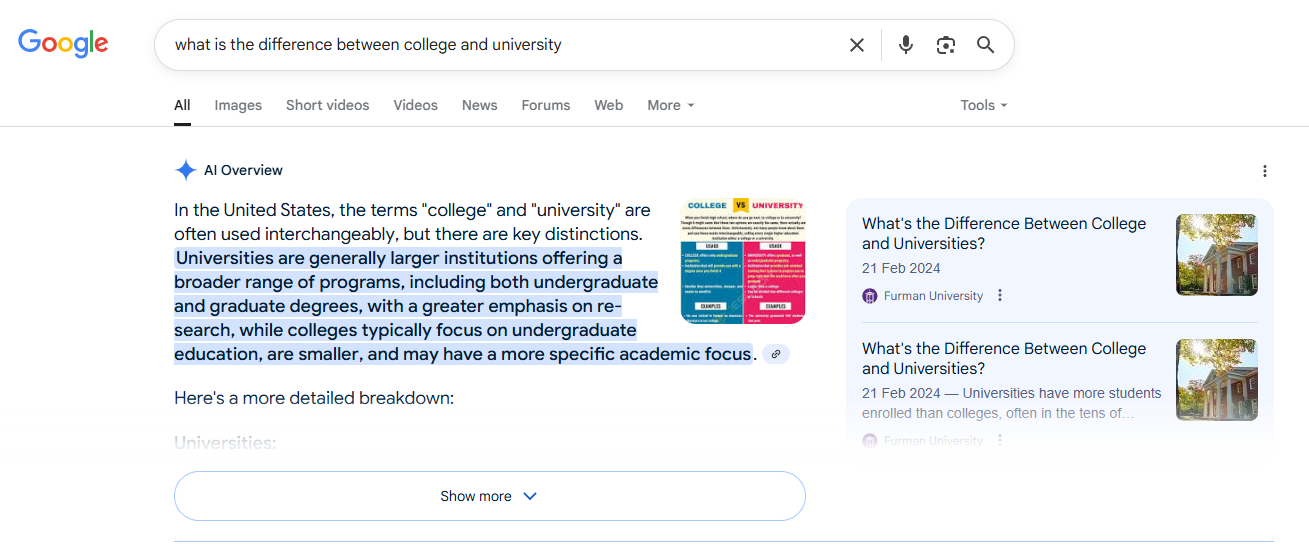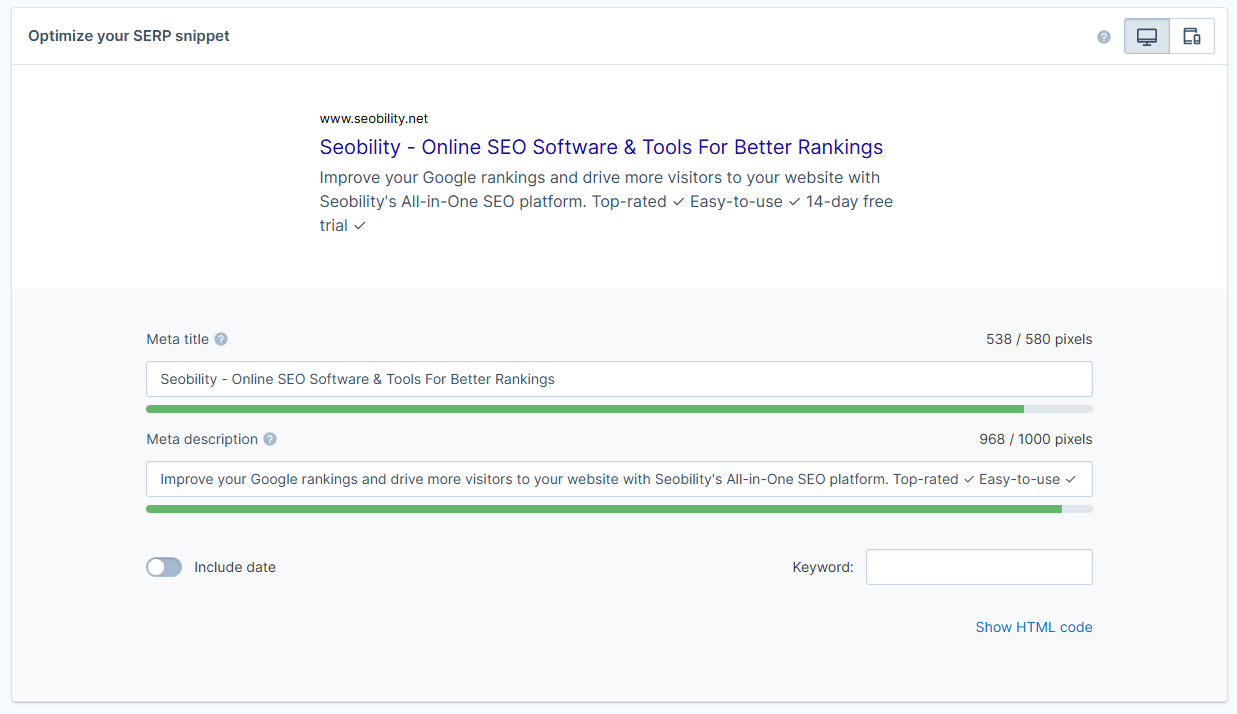What are AI Overviews?
AI Overviews are automatically generated summaries that Google shows at the top of its search results. Powered by Google’s custom Gemini AI model, these summaries pull together information from multiple websites to help users understand complex topics quickly. Each AI Overview includes source links so users can verify the information or explore further.

How do AI Overviews work?
When someone enters a query that could benefit from extra context – such as multi-step questions, comparisons, or planning tasks – Google’s ranking systems may trigger an AI Overview.
To do this, Google performs a process called query fan-out, which means issuing several related search queries. The AI model then generates a summary based on the results of these queries. The links shown below the summary are selected because they were identified as high-quality sources during the model’s grounding step.[1]
What are the key features of AI Overviews?
- Cited sources – Each sentence or block in the summary includes source links in a carousel format, allowing users to verify the content easily.
- Follow-up prompts – Users can continue the search in a conversational mode called AI Mode, either by selecting suggested questions or typing their own.
- Adjustable depth – Google is experimenting with “simplify” and “expand” buttons, letting users control how detailed the answer is.[2]
When and where have AI Overviews been launched?
- May 2023 – Aug 2023: Introduced in Search Labs under the name Search Generative Experience (SGE)
- May 14, 2024: Rebranded as AI Overviews and launched for all U.S. users during Google I/O[2]
- Second half of 2024: Rolled out to users in India, Canada, and parts of Europe
- May 2025: First launch in Sweden and other Nordic markets
Google aims to reach over a billion users, gradually expanding to more regions and languages as quality benchmarks are met.[2]
What do AI Overviews mean for SEO?
AI Overviews change how users interact with search results, making it important for site owners to understand both the opportunities and challenges.
Visibility and eligibility
- No special markup needed: Pages appear in AI Overviews if they meet the same technical and quality standards as regular search results.[1]
- Wider link diversity: Google reports that links shown in AI Overviews receive higher-quality clicks and give users exposure to a broader range of publishers.
Traffic impact
Independent research suggests AI Overviews may reduce click-through rates (CTR):
- -34.5% average drop in CTR for position 1 results, based on Ahrefs’ analysis of 300,000 keywords[3]
- -15% to -37% CTR decline across 700,000 queries, according to Amsive (via Search Engine Land)[4]
- A July 2025 Pew Research survey found users clicked on a result only 8% of the time when an AI answer was shown, compared to 15% without it[5]
What are the best practices for site owners?
To increase the chances of your content being shown or cited in AI Overviews:
- Focus on SEO fundamentals – Ensure your site loads quickly, has clear internal linking, and offers helpful, people-first content.[1]
- Target complex informational queries – Questions starting with “how” or “why,” or those requiring multi-step reasoning, are more likely to trigger an AI Overview. When you create content that answers these types of questions clearly and helpfully, your page is more likely to be cited in AI-generated answers.
- Optimize titles and meta descriptions – Make your listings stand out, even if they’re pushed lower on the search results page by AI content. You can use tools like Seobility’s free SERP Snippet Generator to preview how your search result snippet will look.
- Monitor performance in Google Search Console – Google does not currently report AI Overview traffic separately, so track your overall trends closely.

What challenges and criticisms do AI Overviews face?
- Risk of hallucinations – Like other large language models, the Gemini-powered system can generate incorrect or outdated answers.
- Reduced publisher traffic – Lower click-through rates mean fewer visits for sites, especially on non-branded informational queries.
- Regulatory concerns – Authorities in the EU and elsewhere are reviewing whether AI Overviews comply with copyright and competition laws.
- Limited control for site owners – Although you can use nosnippet or max-snippet tags to exclude your content from search results snippets, there’s no way to exclude your content from being used in AI Overviews without also blocking it from regular search listings.[1]
References
- Google: AI Overviews & Search appearance
- Google Blog: Generative AI in Search (May 2024)
- Ahrefs: AI Overviews reduce clicks (2024)
- Search Engine Land: AI Overviews hurt CTR
- Pew Research: Users less likely to click with AI Overviews (July 2025)
Related links
- How do Google AI Overviews affect SEO (and how should you adapt)? (Seobility Blog)
- How to rank in Google’s AI Overviews: A step-by-step guide (Seobility Blog)
- Seobility’s AI Overview Tracking
